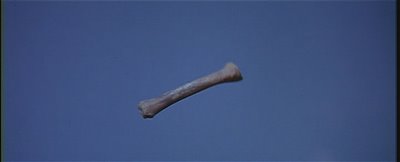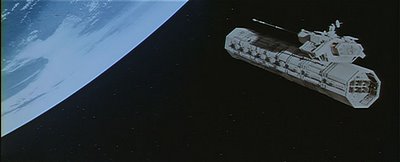
I was having a great chat with my buddy Jason at work this morning. We were comparing notes on the new M. Night Shyamalan movie,
Lady in the Water. He despised it with a passion that surprised me, while I who had his expectations systematically lowered by advanced word of mouth didn't.
I mean, there was great badness, but not much greater badness of story writing than I endured through Superman Returns, X-men III, and PoCII.
I think I can help though.
Seriously.
I think I see what Shyamalan's problem is: it's the central premise of his film. "Story must be protected!" But anyone who has done any writing at all knows: Story must be attacked.
Spoilers ahead.
Forget the missed opportunities of Lady in the Water, the film that could have been where characters discover that they are in a bedtime story and what that means to be a slave of narrative... and what kind of Pirendello adventure that might have been.
As is, the Lady, named Story, comes looking for a Writer. Story is a fragile thing... naked and vunerable, barely a whisp. If Story can find the Writer, the Writer can be Inspired, and through Story, share some Deep Knowledge that can Change the World.

As subtle as a brick to the nose but that's okay. It sets up the stakes, gives our characters some needs. All I'm saying is that there are worse places to start.
The trouble is M. Night does stay true to his metaphor. The film is all about our heroes trying to protect Story from the Wolves long enough that she can get her job done. But writing isn't about protecting fragile story. I mean, that could be an interesting beginning. Seeing Story under seige by all these apparently malevolent forces. And the first reaction is a defensive one. Protect the story... then it would have been interesting, and more truthful I think, to have the people realize the truth.
For Story to survive it must be attacked. Loved and nutured too, for sure, especially in its early stages, but to last? To live? The writer will have to turn on his Story.
The Writer isn't some Warrior Eunch assigned by fate to protect Story's virtue. The Writer must seduce the story, get to know it better than anyone else could. And then... please forgive the x-rated analogy but as far as Story goes, the Writer's gotta fill every hole. And please forgive me again as I say: the Writer services Story best when his love is hard.
The lesson of the Script-doctor--uhm... I mean, Healer-- isn't some atonement for letting down some old story in the past. The lesson for the Healer is that there is only one terrible thing you can do to protect Story. And that is to give her to the wolves and allow her to be torn apart.
To watch as her every fault and weakness, however beautiful, ethereal or pure is consumed and destroyed. Leaving only Story's heart untouched.

And when the Writer puts her back together again she may be changed, but she will be better, stronger, and more beautiful.
That's the Story that I'd tell anyway.






